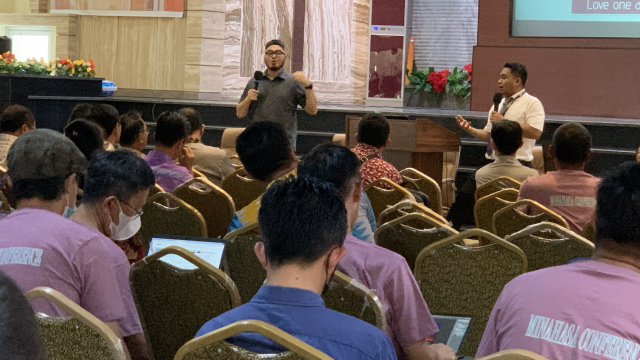I have a friend who has been on a health camp and has returned with many bottles of supplements. I am 40 years […]

I have a friend who has been on a health camp and has returned with many bottles of supplements. I am 40 years old and want to enjoy the best health possible; should I take supplements? Should I advise my mother to start supplements? She is 70 years old and generally well.
This is a very topical question, and one that we revisit from time to time.
First, it’s important to understand what a supplement is. It’s a substance taken in addition to the diet—often a vitamin, mineral, or amino acid—and is not considered food in itself. These substances are normally found in the variety of foods that make up a nutritious and well-balanced diet, and are consumed as a part of a whole and healthful diet.
Back in 2010 studies on beta carotene, which the body converts to vitamin A, showed that taken as a supplement it did not reduce the occurrence of cancers (as originally had been thought). Supplemental beta carotene may lead to increased lung cancer, especially in smokers. Vitamin E supplements were thought to protect against prostate cancer, but large studies showed that this was not the case. Increased risk for cancer was demonstrated in men who were taking the vitamin E supplements even after the close of the study.
In 2019 studies on supplements and health outcomes continue. In a large study analysis of data done at Tufts University,¹ it again appears that best health outcomes occur in individuals who have adequate intake of nutrients such as vitamin A, vitamin K, magnesium, zinc, and copper through their dietary food intake (not as supplemental tablets). These people have better health outcomes (lower all-cause mortality) and lower death rates from heart and blood vessel (cardiovascular) diseases. People who used vitamin D as a supplement but had no evidence of vitamin D deficiency actually had a higher risk of all-cause mortality (this means death from any cause, such as cancer, heart disease, infections, etc.).²
For more than a decade supplemental vitamin D has been recommended as a prevention for cancer, heart disease, and many other conditions, and in some situations at extremely high doses. Recent papers³ caution against this “shotgun” style of treatment (using a therapy widely and hoping to achieve some benefit).
An important aspect of this conversation is the communication between health-care providers and patients/clients. Seek the advice of your physician. When a nutrient is missing from the diet, it needs to be supplemented or replaced, such as vitamin B12 in a total vegetarian diet, and also for lacto-ovo vegetarians as we age. Vitamin D needs to be supplemented in certain bone conditions such as osteoporosis/osteopenia, and there are definite indications for supplements when needed.
To answer your questions: If there is no specific need for a supplement, seek wholesome nutrition through a balanced diet. As far as your mother is concerned, she needs to consult her physician and be guided accordingly.
¹ Fan Chen, Mengxi Du, Jeffrey B. Blumberg, et al., “Association Among Dietary Supplement Use, Nutrient Intake, and Mortality Among U.S. Adults: A Cohort Study,” Annals of Internal Medicine 170, no. 9 (2019):604-613. Published at www.annals.org on April 9, 2019.
² Ibid. See also Mahmoud Barbarawi, Babikir Kheiri, Yazan Zayed, et al, “Vitamin D Supplementation and Cardiovascular Disease Risks in More Than 83,000 Individuals in 21 Randomized Clinical Trials—A Meta-analysis,” JAMA Cardiology, doi:10.1001/jamacardio.2019.1870, published online June 19, 2019.
³ Barbarawi et. al,.
Peter N. Landless, a board-certified nuclear cardiologist, is director of Adventist Health Ministries at the General Conference.
Zeno L. Charles-Marcel, a board-certified internist, is an associate director of Adventist Health Ministries at the General Conference.








